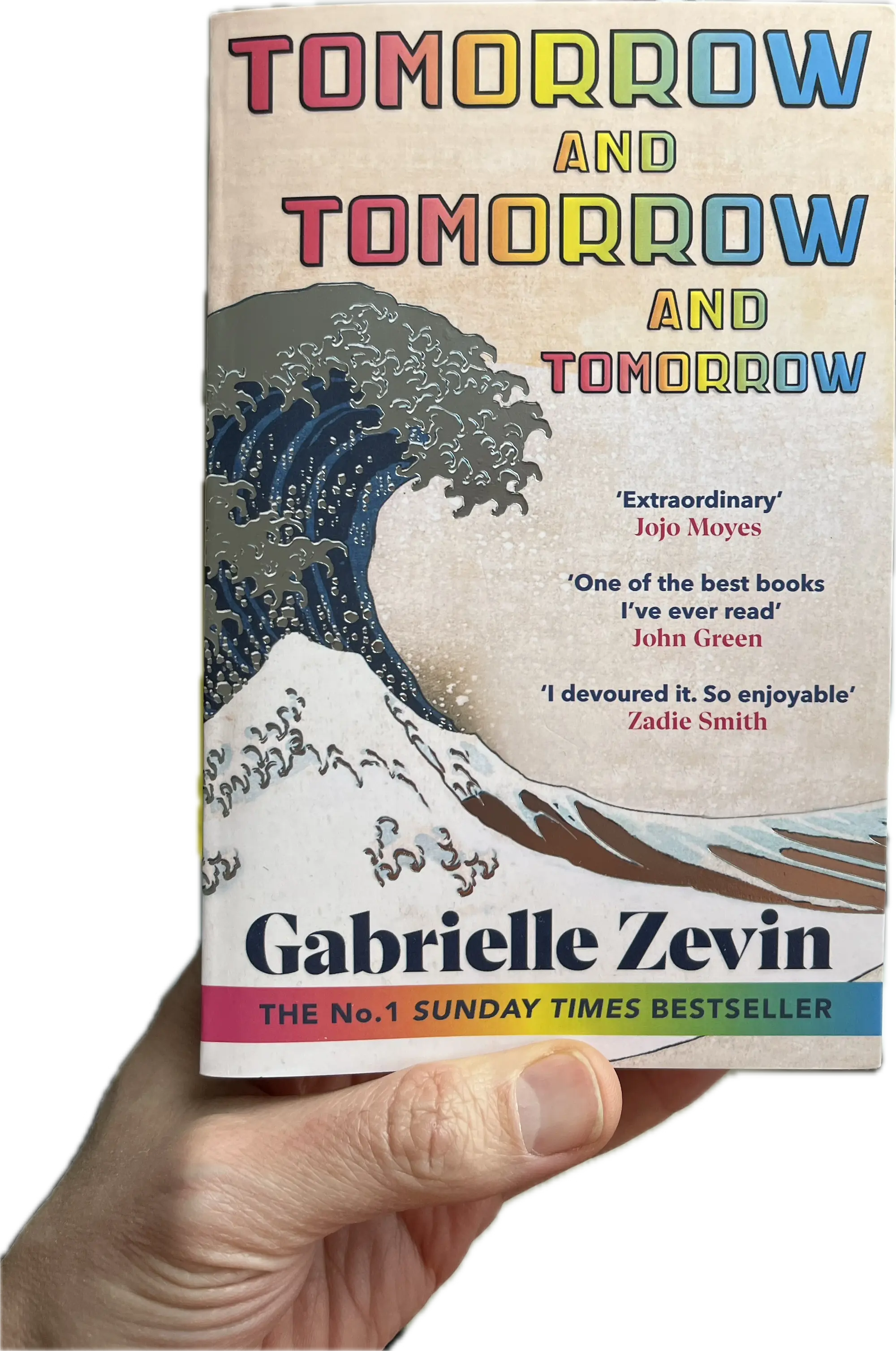Tomorrow and Tomorrow and Tomorrow (2022)

496pp, Fiction
Notes
2024-01-28
Estranged childhood friends from LA meet up again at college on the East Coast and make games together which turn out to be really sucessful, critically and comercially, but their relationship is strained by secrecy and creative differences.
I raced through this in a matter of days, very readable. It falls into a loose mental category I'm starting to form that includes things like How to Lose a Time War and the Locked Tomb series. Basically YA fiction for not young adults. Perhaps Song of Achilles too? But not Circe.
Other things the book reminded me of? Visit from the Goon Squad and Jarret Kobek's, Adeline and Baby books in terms of how it charts a group of friends through ups and downs but also in a general sense of Californian melancholy that pervades.
What the book does particularly well is paint a believable set of friendships (though they can occasionally seem a bit schematic in how the personal reflects the professional aspect of the relationship, this is quite a YA trait I think), and with nuance addresses issues around the reception of creative work based on the gender (or percieved gender) of the author.
BUT, the books treatment of the creative process itself was not as successful. It felt strangely unmoored to me, the concrete details didn't feel right somehow -- did developers ever really burn out multiple graphics cards a year during the developemnt process? IDK, maybe, but it felt more like a strained metaphor than a telling historical detail. So yeah the concrete details didn't really work for me but neither did broad philosophy espoused; basically the old trauma-and-suffering-is-the-way-to-make-great-art thing (which I don't buy) is never far from the surface combined with the idea that “there’s no point making something if you don’t think it could be great” (which I also don't agree with).
AND, the ideas I really liked in the book; that play is a valuable social experience, the relationship of games and play to art and creativity, etc. felt too shallowly explored. I think this is an issue with the show-don't-tell school of writing, it works well for social relationships but it's not always a great way to deal with ideas. This book has some interesting ideas which I would have loved to seen explored more thoroughly.
One more thing: It is troubling esp given that the book deals extensively with the erasure of female creativity that Zevin apparently tried to bury the influence of Brenda Romero's Train, it's quite a pivotal plot point in the book and the acknowledgements section otherwise seems quite complete. The fact that it's influence has only been tacitly conceded leaves a bit of a bad taste tbh.